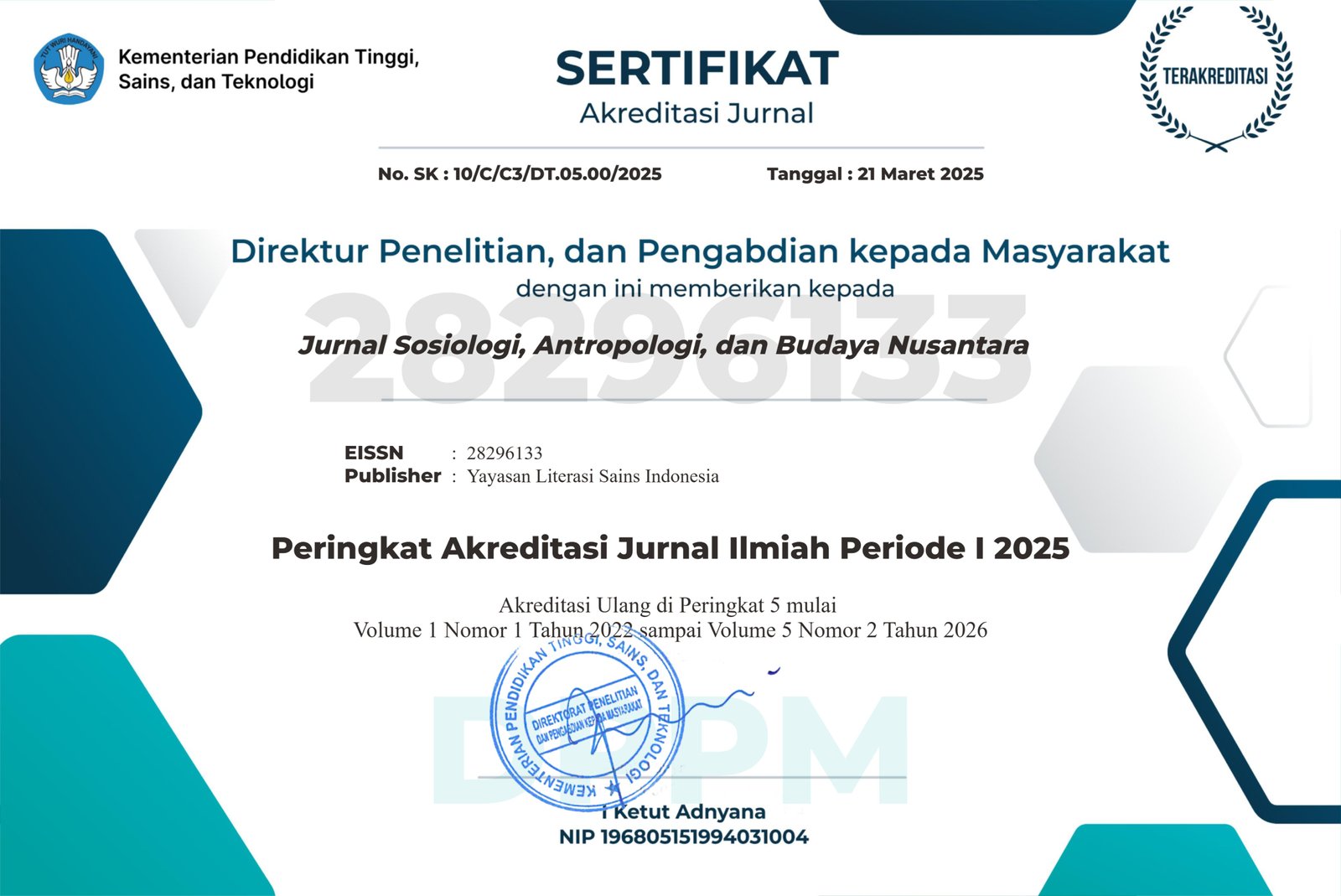ANALISIS PENGARUH PENDIDIKAN ORANG TUA TERHADAP FERTILITAS DI INDONESIA
DOI:
https://doi.org/10.55123/sabana.v3i2.3329Keywords:
Education, Parents, Fertility, Birth, DemographyAbstract
Fertility is the result of female reproduction. Fertility is a term that describes the number of children born alive. The large number of children born in Indonesia is one of the causes of rapid population growth. The high birth rate is influenced by many factors, one of which is education. The education received by both parents greatly influences the thoughts of both wives and husbands in having children because parents who have higher education tend to be more open-minded. Their minds are more rational so they will take everything into account before acting. This research aims to find out how parents' education influences their choice in the number of children they want to have. The research method used is a qualitative method with data collection techniques through literature study. Researchers collect data through articles and journals which are then read and studied. The results of this research are that education is a factor that has a very significant influence on fertility or birth, especially the wife's education which determines the amount of fertility. Meanwhile, for husband's education, husband's education does not have much influence on fertility.
Downloads
References
F. Yulzain, “ANALISIS FAKTOR YANG MEMPENGARUHI TINGKAT FERTILITAS DI KOTA PARIAMAN,” Ecosains: Jurnal Ilmiah Ekonomi Dan Pembangunan, vol. 6, no. 1, p. 77, May 2017, doi: 10.24036/ecosains.11063857.00.
R. Hayati and R. B. Suharto, “Pengaruh pendidikan dan pendapatan serta penggunaan alat kontrasepsi terhadap jumlah kelahiran di kecamatan kota bangun kabupaten kutai kartanegara,” Jurnal Ilmu Ekonomi Mulawarman (JIEM), vol. 5, no. 1, Dec. 2020, doi: 10.29264/jiem.v5i1.8058.
H. Ainy, S. Nurrochmah, and S. Katmawanti, “HUBUNGAN ANTARA FERTILITAS, MORTALITAS, DAN MIGRASI DENGAN LAJU PERTUMBUHAN PENDUDUK,” Preventia : The Indonesian Journal of Public Health, vol. 4, no. 1, p. 15, Jun. 2019, doi: 10.17977/um044v4i1p15-22.
N. Hanum and P. Andiny, “Pengaruh Tingkat Pendidikan, Usia Perkawinan Pertama dan Kematian Bayi terhadap Fertilitas di Kabupaten Aceh Timur,” Samudra Ekonomi Dan Bisnis, vol. 9, no. 2, pp. 160–170, Sep. 2018, doi: 10.33059/jseb.v9i2.764[5] M. Jumliadi, “RESEARCH GAP DAN MODEL FAKTOR YANG MEMPENGARUHI TINGKAT FERTILITAS: SUATU STUDI LITERATUR,” Jurnal Kesehatan Poltekkes Palembang, vol. 15, no. 1, pp. 52–60, Jul. 2020, doi: 10.36086/jpp.v15i1.467.
E. Maharani, P. Hardati, and S. Putro, “Pengaruh Pendidikan, Usia Kawin Pertama, dan Lama Penggunaan Alat Kontrasepsi Terhadap Fertilitas di Kecamatan Buayan Kabupaten Kebumen Tahun 2017,” Jun. 10, 2018. https://journal.unnes.ac.id/sju/index.php/edugeo/article/view/23588.
L. Sinaga, H. Hardiani, and P. H. Prihanto, “Faktor-faktor yang mempengaruhi tingkat fertilitas di perdesaan (Studi pada Desa Pelayangan Kecamatan Muara Tembesi Kabupaten Batanghari),” Jurnal Paradigma Ekonomika, vol. 12, no. 1, pp. 41–48, Jun. 2017, doi: 10.22437/paradigma.v12i1.3933.
A. Mahendra, “ANALISIS FAKTOR-FAKTOR YANG MEMPENGARUHI FERTILITAS DI INDONESIA,” Jurnal Riset Akuntansi & Keuangan, pp. 223–242, Jun. 2019, doi: 10.54367/jrak.v3i2.448.
H. L. N. Laily, D. Febriani, W. Marsuni, and Y. Rahmawati, “Pengaruh Faktor Jenis Tempat Tinggal, Indeks Kekayaan dan Tingkat Pendidikan Terhadap Tingkat Fertilitas Wanita Menikah di Indonesia (Analisis Data Survei Demografi Kesehatan Indonesia Tahun 2017),” j-innovative.org, Jun. 2023, doi: 10.31004/innovative.v3i2.1204.
S. Sohibun and K. N. Siregar, “Keinginan Memiliki Anak Lagi pada Wanita Usia Subur (WUS) di Indonesia,” journal.stikessuryaglobal.ac.id, Jan. 2024, doi: 10.32504/sm.v19i01.915.
D. Boy, F. Abdullah, and N. C. Mardiasih, “Prediksi Fertilitas, Mortalitas dan Kepadatan Penduduk di Kabupaten Manggarai Tengah,” Journal of Regional Economics Indonesia, vol. 3, no. 2, pp. 59–70, Aug. 2022, doi: 10.26905/jrei.v3i2.8454.
Downloads
Published
How to Cite
Issue
Section
License
Copyright (c) 2024 Faiza Conita Chairiya Harahap, Mirna Nur Alia Abdullah

This work is licensed under a Creative Commons Attribution 4.0 International License.


























